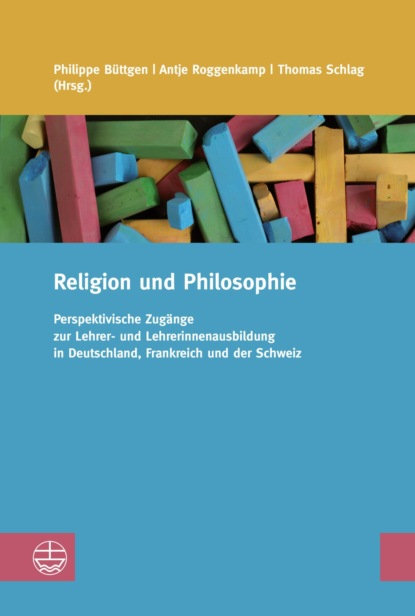Volume 490 pages
0+
Religion und Philosophie
About the book
Die Frage nach gemeinsamen Wurzeln der Religions- und Philosophielehrerausbildung steht im Zentrum der Überlegungen von deutschen, französischen und schweizerischen Religionspädagogen, Philosophen, Historikern und Theologen. Der vorliegende Band unternimmt eine erste Bestandsaufnahme der Situation in den drei Ländern, die sich durch vielfältige Bezeichnungen der Fächer (Religionsunterricht, Religionslehre, Religionskunde, Philosophie, Geschichte) sowie unterschiedliche didaktische Varianten (konfessionell, konfessionell-kooperativ, religionskundlich, «fait religieux») auszeichnet. Diese Komplexität der Situation erfordert andere methodologische Strategien, als sie ein einfacher Vergleich der Lehrerausbildung in den drei Ländern nahelegen würde. Die Autoren stellen deshalb Überlegungen aus den Bereichen der institutionalisierten Lehrerbildung, des professionellen Verständnisses und der didaktischen Strukturen vor dem Hintergrund einer transnationalen Perspektive auf entsprechende historische Entwicklungen vor.
Die Beiträge von Petra Bleisch Bouzar, Philippe Büttgen, Gérald Chaix, Béatrice Finet, Erhard Holze, Monika Jakobs, David Käbisch, Pierre Kahn, Angela Kaupp, Andreas Keßler, Antje Roggenkamp, Arnulf von Scheliha, Thomas Schlag, Henrik Simojoki und Michael Wermke dokumentieren ein mehrtägiges Kolloquium, das im Frühjahr 2016 an der Westfälischen Wilhelms-Universität Münster stattfand.
[Religion and Philosophy. Perspectives on the Teacher Training in Germany, France and Switzerland]
The question of shared roots of teacher training in the subjects religion and philosophy is the centre of thought of German, French and Swiss scientists in the fields Religious Education, Philosophy, History and Theology. This volume describes a first state of situation in the three countries. They are marked by diverse names for the subject (e.g. Religious education, Philosophy, History) and different didactic methods (denominational, theological, «fait religieux»). This complex situations calls for more diverse methodological strategies than a simple comparison between teacher training in the three different countries. Therefore, the authors present considerations from the areas of institutional teacher training, professional understanding and didactical structures against the background of a transnational perspective on certain historical developments.
